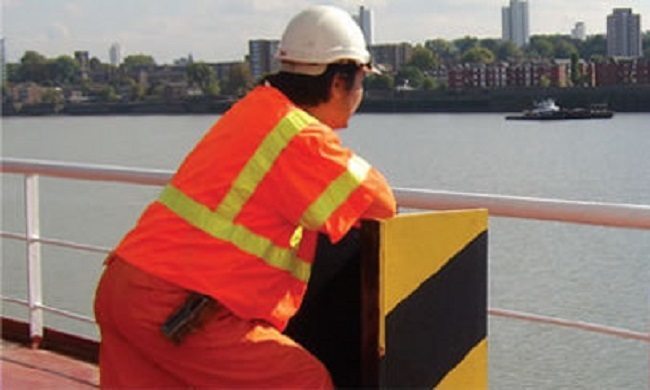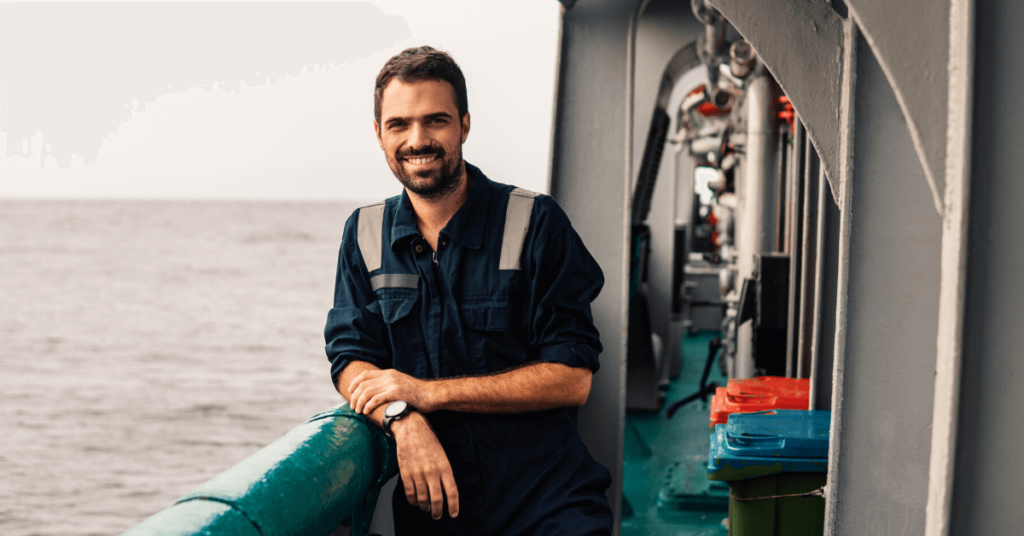How to Cope With Emergencies at Home While You Are Sailing?
My father passed away while I was sailing. It has been almost half a decade, but I still remember that dreadful email from my brother. I was just about to proceed to the bridge for my watch when I read it. It was just a two line email in which he said that Father had passed away and he was flying back (he lives in the US) immediately. He said that the end was peaceful and asked me to be strong. Needless to say, I was devastated. We were in the South China Sea, en route Geoje SBM for discharging. The port was still a good nine days off. The world had come to a grinding halt. Although his health was failing for a while before his death, nobody had prepared us for the inevitable. The initial feeling of sorrow was soon overcome by an intense feeling of frustration at being so helpless. What could one do from such a distance? Make innumerable phone calls? Write unrelenting emails? Much of it seems pointless. Your continuous phone calls are only going to make things more difficult for the family back home. The reassurance of your physical presence simply cannot be substituted by a phone call.
So what does one do when such an unfortunate event occurs in your life? I wish nobody has to ever go through the ordeal that I went through. But alas, we all know that at its best, life is completely unpredictable.

Considering the life we seafarers live, here is a list of the things I have made which will help you cope up with an emergency back home.
1. Face the Reality: Obviously, this is easier said than done. But the sooner you come to terms with the loss, the sooner will you be able to think clearly. In times of such agony, it is very easy to see everyone as your enemy. But then life at sea is different from life ashore. Ashore, it would have been a matter of hours before you got on the first flight back home. Unfortunately at sea, such luxury is impossible. Unless you are the company’s CEOs son, nobody is going to arrange for the ship to be diverted from the middle of the ocean or evacuate you using by a helicopter. Such diversions are done only in Medical Emergencies.
2. Talk to the Master: Once you have come to terms with the occurrence, your first action should be to talk to the Master. Do not take matters in your own hands by calling the company’s personnel department asking for a sign off on compassionate grounds. Leave this to the Master. He will do it in his professional capacity. No Master is so heartless that he will try and scuttle your repatriation in such circumstances. Although in today’s age, personnel onboard calling up the shore office directly is not unheard of, the Master’s word still carries a lot of weight. Put your trust in him. Even if the office can’t arrange for your reliever, the Master can decide to still sign you off and sail shorthand for a short duration after getting appropriate dispensations.
3. Decide about Continuing Onboard Work: It is extremely important for you to decide whether you are still mentally capable of continuing working. Being in charge of the navigational watch or working in the Engine Room when you are not yet fully focussed can be very dangerous. We all have heard about the human element in accidents onboard. It is very important that you have an honest discussion about this with your Head of Department or the Master. Nobody can force you to work. Also, while you might think that by continuing work you are avoiding hassles to other seafarers, it must be borne in mind that a minor loss of focus or a momentary lapse of reason could prove far more disruptive to others than your leave of absence. If you are in a senior management role, it would be wise to delegate your duties to your first substitute. This will ensure that work onboard is not hampered and key decisions are taken correctly and in a time bound manner.
4. Talk to Your Colleagues Onboard: Communicate with your colleagues onboard openly. After I lost my father, I was often asked how difficult it was for me to continue to remain onboard on the ship where there were no fellow countrymen to talk to. (I was then working on a French flagged vessel where I was the only Indian). But to me, it didn’t really matter whether he was my compatriot or not. Nobody understands a seafarer better than a fellow sailor. Everyone onboard could empathize with similar occurrences in their lives when they were onboard. Sharing their experiences made me feel a lot better knowing that I was not the only one who had to go through the ordeal.
5. Call your Family and Reassure them: Remember that your immediate family members will themselves be going through a tough time. Instead of calling up and telling them that the world is conspiring against your repatriation, tell them that everyone is doing their best to help get you back home. Complaining about how difficult it is for you to stay back onboard is only going to compound their grief. Many times, helping other overcome their sorrow can help you overcome your own.
6. Do Not Take to the Bottle: During such times, it might seem that the easiest way to overcome grief is to get drunk. However, it should be borne in mind that alcohol will only have a temporary effect and would in fact prove to be counterproductive in the long run. It will even affect your work and cloud your judgement. This puts safety on the backseat. Likewise, smoking cigarettes will only have a temporary effect to calm you down and will end up causing more harm than good.
7. Get Busy: I once had a cadet who complained that I was giving him too much work. I was in fact giving him the bare minimum to ensure he had enough time to complete his assignments and projects. Instead of taking him to task, I decided to teach him a lesson he’d remember throughout his life. I stopped giving him any work at all and told him that he was on a holiday until I deemed it appropriate. He seemed happy the first day, but on the second he came up on the bridge during my watch and requested me to give him work. The worst thing onboard is “no work”. Without anything to do, the mind begins to wander and is filled with unnecessary thoughts. But a busy person has no such problems. He will use his spare time sparingly and in a constructive manner to rest and recuperate.
8. Learn to Live with the Memories: “Memories warm you up from the inside. But they also tear you apart.” This quote from the famous writer Haruki Murakami cannot be better explained than in such a situation. Once you come to terms with the loss, it will be very important for you to decide on how to deal with the memories. Knowing that your loved one will no longer be there home to welcome you on your return from your sea tenure can be gut-wrenching. But not letting this upset you is something you will have to certainly work upon. Giving away something for charity in your loved ones name can have a profound positive effect and help you deal with the memories better.
It is but natural for you to think that your journey through life will no longer be the same without your dear departed. But do not let it cripple your ambitions and goals. Instead, make it your life’s mission to live up to their expectation and fulfill the dreams they had for you. There is no better way in honoring the dear departed than by knowing that they would have been proud of what you are today.
Over to you..
How have you handled the news of an unfortunate event that has occurred back home while you were sailing?
Let’s know in the comments below.
Do you have info to share with us ? Suggest a correction
Related Posts
Subscribe To Our Newsletters
By subscribing, you agree to our Privacy Policy and may receive occasional deal communications; you can unsubscribe anytime.
















My husbands father passed away while he was onboard. I can relate to every word written here. Very touching article. Great job Marine Insight.
Great article Nihar, very well written !
Thanks for article Nihar.
I am a cadet at Holland America line and last week I lost my best friend. It was the most difficult time in my life. All I could think of was to go home to the funeral. I stood by her side the 3 years of her illness and I had to stand by her at her last step.
I strongly recommend that you talk to the master about any emergency at home. It is because of the captain, staff captain, chief engineer and the hotel director on my ship that I was able to go home and I made it in time to the funeral!
Right now I am waiting on my flight details to go back to the ship.
And I don’t wish for anyone to get into the same situation. And if you happen to find yourself in such situation I wish you all the strenght in the world!
Jens
It happened twice to me to receive a tragic news from home. First it was in 1971 when I was with my vessel in Palembang. At that time there were no mobile phones. I received a telegram on board that my eldest brother has passed away. I asked the master if I could go home by airplane. My request was rejected with the reason that there was nothing I could do because my brother was already deceased. After 2 days we sailed back to Jakarta,my home town. After arrival in Bandung where my brother lived, I missed the funeral as the family just returned from the graveyard.
The 2nd time was in 1986 when I was in Singapore where my ship was in dock for some repairs. At that time there were also no mobiles and I received a message through the telegram that my father is dying. Again I asked the master for permission to go home. Again the request was rejected because at that time I was the chief engineer. Also because the vessel will leave Singapore in 2 days and without a CE on board it is imposable that the vessel is allowed to leave the port. After 2 days on a Sunday, we left Singapore to Jakarta, my home town. We arrived Tuesday midnight and I went straight to the hospital. My father was conscious when I arrived at the hospital. By God’s blessing I manage to see my father alive. Thursday morning he passed away. My vessel was scheduled to leave Jakarta on Thursday and off course I will be unable to sail along. I had to find a replacement and lucky a classmate from the Merchant Marine Academy, where I finished my marine education, was on shore without a job and was willing to replace me.
That was my experiences when something happened at home while I was on board.
Who will shoulder the plane tickets? Will the company shoulder it or the seaman himself?
Depends on the company. Most of the times its the seaman who has to bear the expenses.
For further questions, Kindly us https://forums.marineinsight.com
Thanks
After my PhD thesis on the lived lives of seafarers, I came to realise how seafarers act and react with home emergencies. My husband is a seafarer. I gave strict instructions to my family. No bad news will be sent to my husband directly. I am the first to know. I will phone the agent and ask him to contact the Master, and if he could contact the master to give him the news. That way my husband would not receive the news via electronic means; the master can ensure that he can have the time and space to absorb the news. Then allow him to contact me after he received the news. The two of us discussed it and decided that it will be the best course of action.
My husband was due to join three days prior to the passing of his father. I emailed the agent and explained the situation to him. I asked him if it is possible for my husband to join five days later to give him time to attend the funeral of his father. The agent made arrangements with his back-to-back to stay on board until my husband rejoined.